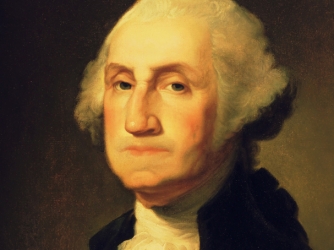cartoon credit: Clay Bennett, Chattanooga Times Free Press
Unresolved:
natural born citizenship and eligibility to run for President
The
9th GOP debate was not much fun to watch, nor did we learn anything about
the eligibility of two candidates with Hispanic pedigrees (no, not Jeb!, who defined
himself as “Hispanic” on his voter registration form), those two being Ted Cruz and Marco
Rubio.
Cruz was conferred American
citizenship at birth because his mother is an American citizen, and legal
experts have largely agreed that would qualify him for natural-born
citizenship. The Texas Republican was born in Calgary, Alberta, Canada, and
also had Canadian citizenship until he renounced it in 2014.
Is
that correct? If so, what’s all the fuss about?
Gateway Pundit posted a more detailed and sourced analysis of the controversy over Ted
Cruz’s eligibility as a natural born citizen of the U.S.:
Lawrence
Sellin, Ph.D. a retired colonel with 29 years of experience in the US Army
Reserve, argues that Senator Ted Cruz entered the United States illegally as a
child in 1974. His parents failed to file a CRBA form which is required by US
law. Ted’s parents did not fill out the required form until 1986.
It
would be nice if the Cruz camp cleared this up for Republican voters.
Exactly how and when did Ted
Cruz obtain U.S. citizenship?
The fact that it is still an
open question at this stage of the Presidential campaign is a testament either
to the galactic ignorance of our political-media elite or their willingness to
place political expediency ahead of the Constitution and the law.
There is no third alternative.
Rafael Edward “Ted” Cruz was
born in Calgary, Alberta, Canada on December 22, 1970 and remained a Canadian
citizen until he officially renounced it on May 14, 2014, eighteen months after
taking the oath of office as a U.S. Senator. At the time of his birth, Cruz’s
father was a citizen of Canada and his mother was a U.S. citizen.
Legally, Cruz could have
obtained US citizenship through his mother consistent with Public Law 414, June
27, 1952, An Act: To revise the laws relating to immigration, naturalization,
and nationality and for other purposes [H.R. 5678], Title III Nationality and
Naturalization, Chapter 1 – Nationality at Birth and by Collective
naturalization; Nationals and citizens of the United States at birth; the
relevant section being 301 (a) (7):
“a person born outside the
geographical limits of the United States and its outlying possessions of
parents one of whom is an alien, and the other a citizen of the United States
who, prior to the birth of such person, was physically present in the United
States or its outlying possessions for a period or periods totaling not less
than ten years, at least five of which were after attaining the age of fourteen
years: Provided That any periods of honorable service in the Armed Forces of
the United States by such citizen parent may be included in computing the
physical presence requirements of this paragraph.”
In that case, Cruz’s mother
should have filed a Consular Report of Birth Abroad of a Citizen of the United
States of America (CRBA)
with the nearest U.S. embassy or consulate after the birth to document that the
child was a U.S. citizen.
There are two apparent
contradictions regarding how and when Ted Cruz obtained US citizenship.
First, according to the Canadian
Citizenship Act of 1946, also referred to as the “Act of 1947,”Canada did
not allow dual citizenship in 1970. The parents would have had to choose
at that time between U.S. and Canadian citizenship. Ted Cruz did not
renounce his Canadian citizenship until 2014. Was that the choice originally
made?
Second, no CRBA has been
released that would verify that Ted Cruz was registered as a U.S. citizen at
birth.
It has been reported that
the then nearly four-year-old Ted Cruz flew to the U.S. from Calgary, Alberta,
Canada in 1974.
Ted Cruz could not have entered
the U.S. legally without a CRBA or a U.S. passport, the latter of which was not
obtained until 1986.
If Ted Cruz was registered as a
U.S. citizen at birth, as his spokeswoman claims, then the CRBA must be
released. Otherwise, one could conclude that Cruz came to the U.S. as a
Canadian citizen, perhaps on a tourist visa or, possibly, remained in the U.S.
as an illegal immigrant.
It is the responsibility of the
candidate for the Presidency, not ordinary citizens, to prove that he or she is
eligible for the highest office in the land. Voters deserve clarification.
The
issue at hand -- as Ted Cruz has learned well -- is over whether Rubio can be
considered a "natural born citizen."
Rubio's citizenship has
been contested before, when the question popped up in the 2012 election
after rumors swirled that Republican candidate Mitt Romney might tap Rubio as a
potential running mate.
The argument over what a
"natural born citizen" actually means has been going on for years,
and the only group who could actually define it, the Supreme Court, has never
done so.
# # #











